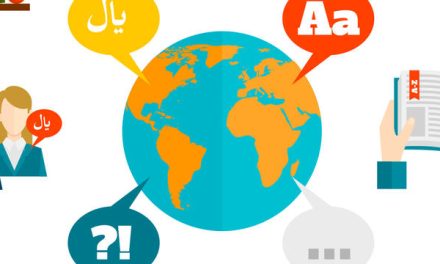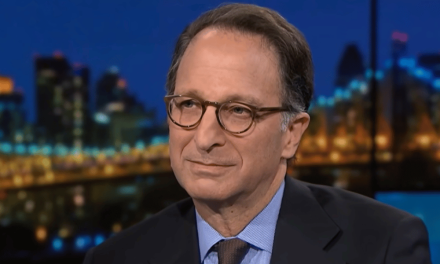Currently, 66 individual books make up the English Bible’s various divisions. The Holy Spirit inspired the writing of the Holy Scriptures by prophets, shepherds, nobles, and others.
Interestingly, some books weren’t included in the Bible but still have a historical place. It’s exciting to think that there could be a book that needed to be included because it didn’t fit the requirements.
The Book of Enoch has always been shrouded in mystery, with many religious leaders discouraging their followers from reading it out of fear of spreading heresy. The question this presents is, why should people avoid the Book of Enoch?
From different biblical accounts, it’s clear that taboo subjects have a magnetic pull. But those who have violated the norms have paid a high price for it.

In the current period, scholars and Christians have put some distance between themselves and the writings in the Book of Enoch. Maybe you’ve encountered something and wondered why the Bible doesn’t address it. When did it come, and why is reading the Book of Enoch taboo?
In this article, delve into why many Christians distance themselves from the Book of Enoch. Uncover the historical, theological, and canonical arguments behind its exclusion from mainstream Christian doctrine.
Essential Details About the Book of Enoch
You may or may have yet to hear of the Book of Enoch based on your religious upbringing. But what is this book, and why do people of different faiths and academics treat it suspiciously?
The Book of Enoch is not part of the accepted biblical canon because it is a pseudepigraphical composition. The Greek to Ethiopic translation completed in Palestine is the sole original copy of the book that has survived to the present day. There are stories concerning the world’s end, complete with visions and insights.
Topics covered in the book include the fall of angels, the appearance of Nephilim (also called giants in the Bible), the cause of the Great Flood, cosmology, and several predictions. The book is split into five sections. This may sound familiar to you. The book’s themes and structure echo the New Testament’s concluding book, Revelation.
On the other hand, the Book of Revelation was embraced and incorporated into the Holy Scriptures, whereas the Book of Enoch was not. Judgment for the wicked and benefits for the good are at the heart of the Book of Enoch.
Who Was the Biblical Enoch, Anyway?
The popularity of the Book of Enoch can be directly attributed to Enoch. Genesis 5:22–24 states that Enoch was Adam’s distant great-grandson. After fathering Methuselah, the Bible says Enoch walked with God and produced other offspring for another 300 years. At the end of his 365th year, Enoch went on a walk with God and was removed from this world.
One could reasonably wonder what factors led to the Book of Enoch’s final exclusion from the Bible.
Why the Book of Enoch Was Excluded From the Bible
The Book of Enoch is not part of the Bible, notwithstanding its widespread readership and sporadic mentions in other holy books like Jude. Then why has it been left out of the primary narrative?
Enoch Was Not the Author
Scholars assume the Book of Enoch is not authored by the Old Testament character Enoch. The earliest chapters were written around 300 B.C., whereas the most recent chapters were probably written around 100 A.D. This suggests that the book was composed three to four thousand years after Enoch. Invoking Enoch’s name means the authors are trying to get attention and influence people to accept their beliefs.
Insufficient Divine Insight
The lack of apparent indications of divine inspiration also plays a significant role in the Book of Enoch’s omission from the Bible. Despite its widespread acceptance, the book lacks the hallmarks of divine inspiration. Some early churches justified its use because of Jude’s endorsement, but later perspectives changed.
Failure to Conform to Christian Doctrine
Scholars of religion believe that the Book of Enoch’s original intention was not to teach about God or represent biblical truths. For example, the first part, “The Book of Watchers,” focuses on debatable topics related to priestly matrimony in Jewish society.

Christian and Jewish Rejection
The Jewish people knew about the Book of Enoch long before the birth of Christ, but they did not consider it to be divinely inspired because it did not fit the criteria. The Eastern Orthodox Church, Roman Catholic Church, and Protestant Churches are the only Christian denominations that have rejected it. The absence of the Holy Spirit’s inspiration is the fundamental cause of the book’s overwhelming rejection. Even though Jude used it as a citation, that does not make the entire work prophetic.
Problems With Inconsistency and Improper Advice
Christian ideas are directly contradicted in the Book of Enoch, and new incorrect beliefs are introduced that aren’t found anywhere else in the Bible. It has a bad rep for trying to add new beliefs on top of what already exists in the Bible and for advocating paganism.
Therefore, the Book of Enoch was finally omitted from the Bible due to issues regarding creation, lack of divine guidance, incompatibility with biblical doctrines, and disdain by Jews and Christians.
What Makes One Wary of the Book of Enoch?
Studying the Book of Enoch won’t hurt you in any way. It can be read and analyzed in the same way as any other text. Different faiths should be considered and evaluated before proceeding. This book should not be taken seriously because the Holy Spirit didn’t inspire it.
The Book of Enoch stands out for being difficult because of all the mystery and mystery it contains. This means deciphering its myriad texts takes time and effort.
Frequently Asked Questions
Is reading the Book of Enoch forbidden?
Since everyone has the right to read whatever they want, including the Book of Enoch, it is not sinful to do so. The Christian faith rejects it as uninspired and contentious; therefore, readers should proceed cautiously.
Did Jesus comment on the Book of Enoch?
Some people think that in Matthew 22:29–30, Jesus cites the Book of Enoch. Jesus was commenting on the Sadducees’ misinterpretation of the Scriptures. New insights into the nature of angels were a constant theme in his sermons.
Where does the Book of Enoch make an appearance in the Bible?
In Jude 14 and 15, it would appear that Jude refers to the Book of Enoch; nevertheless, this is debatable.
Are there any references to the Book of Enoch in the New Testament?
Yes, Jude directly alludes to the Book of Enoch in the New Testament. However, more proof is needed before it can be included in the canon of inerrant Scriptures.
In what way did God guarantee Enoch’s survival?
In a promise to Enoch, God said He wouldn’t flood the earth. Furthermore, He promised to invite the children of Noah to accept the message by calling upon them.
Does the book of Enoch identify a messiah figure?
The Book of Enoch describes a Messiah with divine characteristics called the Son of Man. According to the scriptures, the Messiah will take part in the ultimate judgment and sit in his kingdom of glory.
Is there any information regarding the afterlife in the Book of Enoch?
The many heavenly realms described in the Second Book of Enoch have made it famous. The book claims ten heavenly spheres are depicted in some detail.
Does the book of Enoch contain hidden secrets?
The Book of Enoch is filled with extensive symbolism and can be challenging to comprehend. Seeking guidance from a knowledgeable scholar may be beneficial in understanding its contents.
What does God think of the Book of Enoch?
Scholars’ conclusion that the Holy Spirit didn’t guide the text makes it hard to know what God thinks about it. Other parts of the Bible are taken at face value, appearing to have been written by God.
In conclusion
Why one should avoid the Book of Enoch has been asked. Proper comprehension and interpretation are the book’s fundamental problems. In addition, many different faiths have rejected it because they believe God does not inspire it. Studying the Bible should be a high priority, and one should also consult other sources for information on the end times.




